Description
People around the Mediterranean region have used oregano for centuries in herbal medicine to treat many ailments, including:
- Skins sores
- Aching muscles
- Asthma
- Cramping
- Diarrhea
- Indigestion
- Colds
- To boost overall health
Scientists need to do more research to confirm the benefits of using oregano, but there is some evidence that it could help:
- Fight bacteria
- Relieve inflammation
- Regulate blood sugar and lipids
- Fight cancer
Oregano and other herbs provide antioxidants. Dietary antioxidants help the body eliminate free radicals, which are toxic substances that result from natural processes and environmental stresses. A buildup of free radicals can trigger oxidative stress. Oxidative stress can lead to cell damage that may result in various diseases, including cancer and diabetes.
Antibacterial Properties
The main components of oregano essential oil are carvacrol and thymol. These may have antimicrobial properties.
In a 2019 laboratory study, carvacrol and thymol prevented various strains of Staphyloccus aureus (S. aureus) bacteria from developing in meat and dairy products, suggesting that it could help control bacterial growth in foods.
Amid growing concerns about diseases becoming resistant to antibiotics, researchers carried out lab tests to investigate the effects of oregano oil on various microbes that do not respond to other drugs.
The oil showed “significant antibacterial activity” against 11 such microbes. This suggests that substances in oregano could play a role in fighting diseases that no longer respond to antibiotics.
While these tests indicate that compounds in oregano may have antibacterial properties, it does not mean that eating oregano will prevent infections.
Vitamin C is an antioxidant that plays a key role in the immune system. Which foods contain vitamin C? Find out here.
Anti-inflammatory Properties
According to one literature overview, the oils and constituents of oregano oil, such as thymol and rosmarinic acid, appear to have anti-inflammatory properties.
In animal studies, oregano extract has reduced inflammation that could lead to:
- Autoimmune arthritis
- Allergic asthma
- Rheumatoid arthritis
It is worth noting that the studies used concentrated extracts of oregano. This is not the same as humans eating oregano in the diet.
Rosemary is another herb that may have anti-inflammatory properties.
Protecting Against Cancer
Some of the ingredients in oregano may have anticancer properties.
Scientists have found evidence that extracts may help prevent DNA damage in cells due to oxidative stress, radiation, and mitogens, a type of protein that can cause unwanted cell division.
Researchers have also found evidence that carvacrol and thymol may prevent melanoma cells from growing and skin cancer from spreading.
While eating oregano by itself is unlikely to prevent cancer, a varied, plant-based diet that is rich in antioxidants may help prevent cell changes that can lead to cancer.
In 2013, lab studies suggested that Origanum majorana could help slow or stop the progression of metastatic breast cancer.
How can diet affect the risk of cancer?
Diabetes
Compounds in oregano may help manage type 2 diabetes. Authors of a 2016 rodent study concluded that Origanum extract may help:
- Improve insulin resistance
- Regulate the expression of genes that affect fat and carbohydrate metabolism
- Restore damaged liver and kidney tissues
The authors noted that some people already use oregano leaves and oil to manage high blood sugar levels.
Type 1 diabetes is an autoimmune disease. Experts do not know what causes it, but oxidative stress may play a role.
In 2015, researchers found that an extract of oregano improved type 1 diabetes in mice. They suggested this could be due to oregano’s antioxidant properties, its effect on the immune system, and its ability to prevent cell death.
Which other herbs and spices may help with diabetes? Find out here.
Depression
In 2018, scientists looked at how treatment with oregano oil and other substances affected rats with depression due to chronic unpredictable stress.
After 14 days, stress-related behavior improved in rats that received the oregano treatment. The study authors concluded that oregano might relieve stress-related behavior.
Can other herbs help with depression? Find out here.
Other Possible Health Benefits
According to the National Library of Medicine, people take oregano products by mouth for:
- Coughs
- Asthma
- Allergies
- Croup
- Bronchitis
- Painful menstrual cramps
- Rheumatoid arthritis
- Urinary tract infections and disorders
- Headaches
- Diabetes
- Bleeding after a tooth extraction
- Heart conditions
- High cholesterol
People apply oregano oil to the skin for:
- Acne
- Athlete’s foot
- Dandruff
- Canker sores, toothache, and gum disease
- Warts
- Wounds
- Ringworm
- Rosacea
- Psoriasis
- Insect bites and as an insect repellant
- Muscle and joint pain
- Varicose veins
There is not enough evidence to support the medicinal use of oregano as a dietary herb, supplement, or oil in most of these cases.
However, it is unlikely to cause harm in most people as long as people do not consume too much oregano oil and ensure that any topical applications use a diluted form of the oil.
Nutrition
There are many types of oregano, and the antioxidant and nutrient content can vary widely.
The table below shows some of the nutrients in one teaspoon (tsp), or 1 gram (g) of dried oregano leaves.
It also shows how much an adult needs of each nutrient, according to the 2015–2020 Dietary Guidelines for Americans. Requirements vary according to the individual’s sex and age.
Nutrient Amount Daily Adult Requirement
Energy (calories)
2.7 1,800–3,000
Carbohydrate (g) 0.7 130
Fiber (g) 0.4 25.2–33.6
Calcium (millgrams [mg]) 16.0 1,000–1,200
Phosphorus (mg) 1.5 700
Potassium (mg) 12.6 4,700
Folate (mcg, DFE) 2.4 400
Examples of antioxidants in the oregano herb include tryptophan, lysine, valine, arginine, vitamin C, vitamin A, and vitamin E (tocopherol).
1. Stimulates Digestion
You know that feeling after you eat a meal when it seems like a brick is in your stomach? You wonder if your body is actually digesting your food or if it’s just going to sit in there forever? Or what about feelings of indigestion with uncomfortable burping and acid reflux? Heartburn is real and painful!
Ginger is your new best friend for supporting everything regarding digestive health. Functional dyspepsia is the clinical term used to describe upper abdominal discomfort like acid reflux that is thought to be related to slowing of the digestive system. Ginger has been shown to be help these issues.
Ginger helps increase the body’s ability to empty food from the stomach more quickly—known as gastric emptying. With this increased motility in the digestive system, it’s less likely that heartburn or indigestion will occur. In fact, one study of healthy participants showed that taking ginger capsules (1200 mg) with a meal stimulates digestion so much that gastric emptying speed was doubled! Imagine the relief that would come from food leaving your stomach twice as quickly.
The more efficient your digestion is, the more energy you will have because researchers have found that approximately 60 percent of your body’s energy goes to metabolism. If ginger can improve digestion, your metabolism will improve and energy will be more available. This is possible because the quicker you can digest your food, the faster you will absorb the vitamins and minerals from the foods you eat. You will also have less undigested food in your digestive tract; food consumes energy when left undigested. So not only does ginger stimulate digestion by improving symptoms of dyspepsia and speeding gastric emptying, but it also benefits your overall energy levels.
2. Lowers Blood Pressure
High blood pressure (known as hypertension) is a common symptom of the standard American diet, which is high in processed foods. According to the Mayo Clinic, when hypertension is left untreated it can lead to damage to your arteries, heart, brain, kidneys, and eyes. Doctors frequently prescribe blood pressure medications to their patients, but what if you could reduce your blood pressure naturally?
Ginger has been shown to improve blood pressure (in conjunction with medication) by acting as a vasodilator—it expands your blood vessels. This is helpful for increasing circulation in the body, which reduces the overall blood pressure throughout the body. Ginger also contains potassium, a mineral that research has found can help lower blood pressure. According to the United States Department of Agriculture (USDA), ginger contains 415 mg of potassium per 100 g. That’s more than a banana (a food known for being high in potassium), which only contains 358 mg per 100 g.
3. Reduces Nausea
Nausea is no fun. Whether it’s from motion sickness, morning sickness, post-surgery effects, chemotherapy, or pregnancy, nausea is not an experience anyone wants. And when you do experience an upset stomach, you’d give anything to make it end! Enter ginger. Ginger has been shown to be an effective remedy for nausea related to pregnancy and chemotherapy.
Ginger has also been found to reduce the amount of nausea you might otherwise experience when feeling seasick. After surgeries, it’s common for some people to experience nausea and vomiting. The good news is that researchers have found ginger to be an “effective means for reducing postoperative nausea and vomiting.” Not only does ginger provide relief from post-surgery nausea, it can also help cancer patients. In a study of both adults and children undergoing chemotherapy treatments, ginger was found to be effective in providing relief from the nausea that accompanies those treatments. Based on the scientific evidence, ginger is definitely worth a try when you’re experiencing nausea of any kind.
4. Reduces Inflammation
Inflammation occurs naturally even in healthy individuals. It’s a natural and healthy response to protect the body from injuries or sickness. However, when inflammation is excessive or chronic, it can be very damaging. In fact, researchers have found that chronic inflammation is at the root of many common diseases such as heart disease, autoimmune disorders, and cancer.
The active constituents in raw ginger—gingerol, shogaol, and paradol—are responsible for many of the natural anti-inflammatory effects that ginger provides. Ginger has been shown to inhibit the production of pro-inflammatory cytokines (small proteins released by cells to communicate with other cells in the body). Pro-inflammatory cytokines are responsible for the upregulation of inflammatory reactions, meaning that these reactions happen more often in the body. This is directly related to increased inflammation in the body. Since ginger has been shown to reduce the levels of inflammation that those pro-inflammatory cytokines can produce, it’s only natural that inflammation will decrease, too. This is a big deal! Because inflammation can run so rampant in the body—especially with a poor diet—ginger is a great way to help reduce the overall amount of inflammation in the body. If you’re experiencing an inflammatory condition, ginger is a natural and powerful anti-inflammatory remedy to try.
Ready to take control of your health? Download the Chopra App for personalized well-being guidance you can access anywhere.
5. Antibacterial Properties
If you aren’t convinced of the medicinal properties of ginger yet, you will be now! Researchers have found that ginger is an effective antibacterial for many drug-resistant bacteria in clinical applications. In their study, the researchers stated that “ginger has great potential in the treatment of many microbial diseases [such as Bacillus and E. coli].”
The antibacterial benefits don’t stop there. In oral health, two types of ginger have been shown to inhibit the growth of pathogens that contribute to periodontitis(inflammation of the gums that is caused by gum bacteria).
The antibacterial properties that ginger possesses show that food truly is medicine.
6. Blood-Sugar Regulator
Diabetes is the most common disease of the endocrine system. Type 2 diabetes accounts for more than 90 percent of diabetes diagnoses. One of the causes of diabetes is chronic hyperglycemia—the clinical term for high blood sugar. If you can regulate your blood sugar levels, you will be less likely to experience chronic hyperglycemia that can lead to diabetes over time. One study showed that supplementing with ginger reduced fasting blood sugar levels as well as hemoglobin A1c levels.
If you can keep your A1c levels below 5.7 percent, then you are in the normal range. Since ginger reduces blood sugar levels and A1c, it’s safe to say that ginger helps regulate the mind-body system to keep blood sugar levels in check and prevent chronic hyperglycemia.
7. Reduces Menstrual Pains
Many women know how debilitating menstrual pain can be. There are over-the-counter pain medications dedicated to this specific pain, but ginger may also provide relief.
One study found that ginger is as effective as ibuprofen in reducing the pain associated with dysmenorrhea (painful menstruation) in women. Menstrual cramps in the abdomen and lower back are common in dysmenorrhea. That’s great news for women! Next time you experience cramping during your menstrual cycle, give ginger a try.
8. Positively Affects Cholesterol Levels
As stated earlier, ginger is helpful in reducing blood pressure, but it’s also beneficial for cholesterol levels. Ginger has been found to reduce cholesterol levels—specifically reducing low-density lipoproteins (LDL).
According to the American Heart Association, “LDL cholesterol is called ’bad’ cholesterol. Think of it as less desirable or even lousy cholesterol, because it contributes to fatty buildups in arteries.” That fatty buildup is known as atherosclerosis and it, it increases the risk of heart attack and stroke.

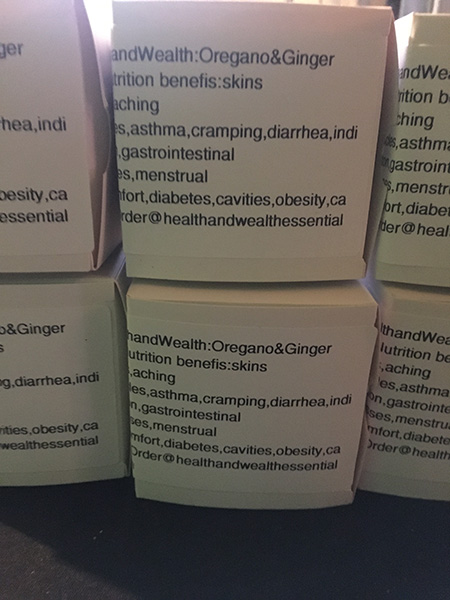
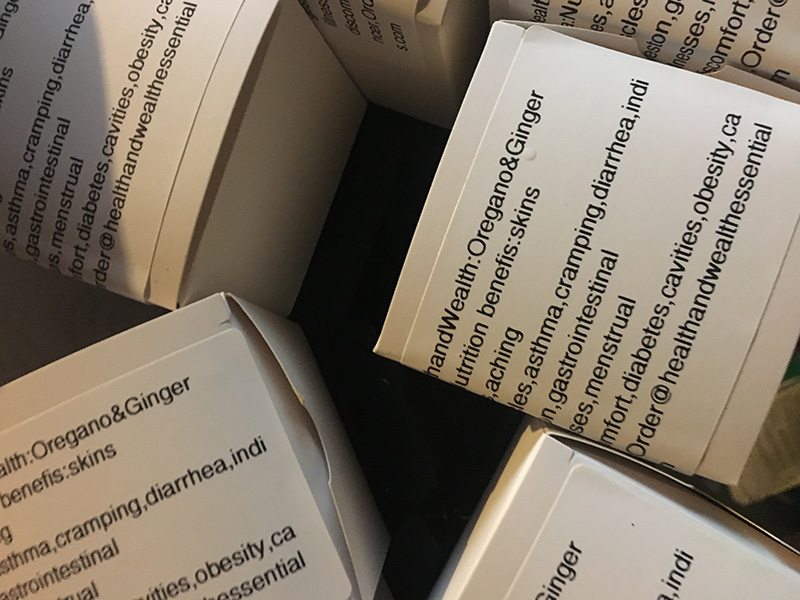
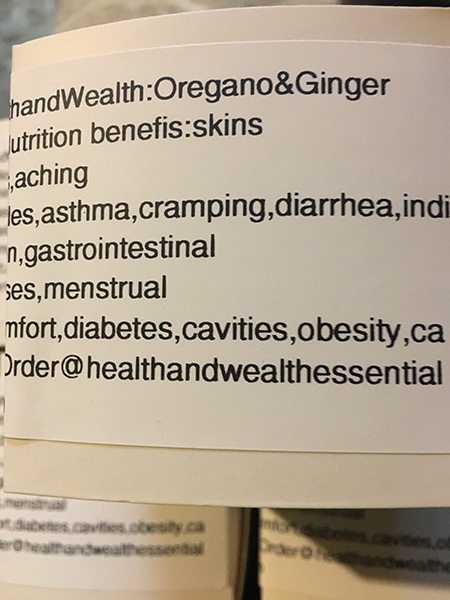
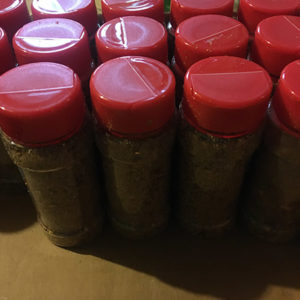
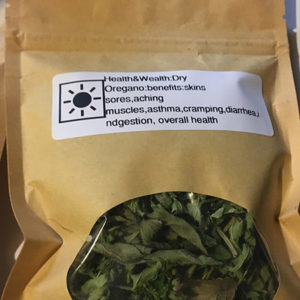

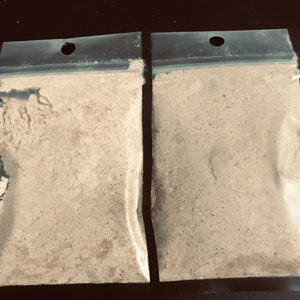


Reviews
There are no reviews yet.